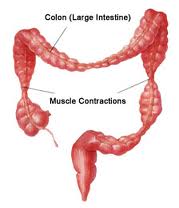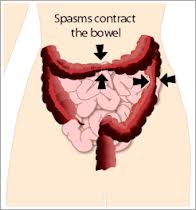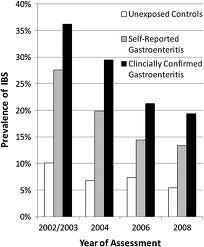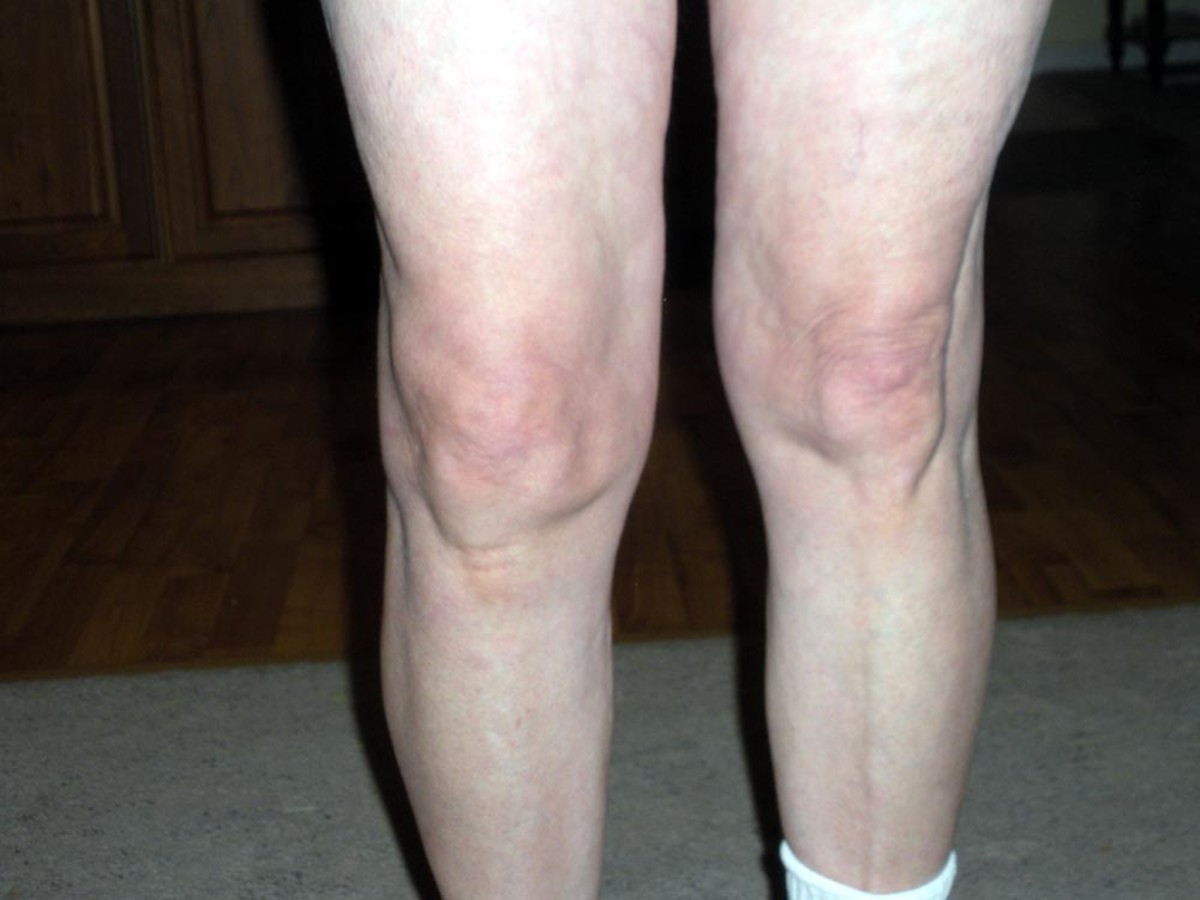What is Irritable Bowel Syndrome (IBS)? Signs and Symptoms.






Irritable Bowel Syndrome (IBS)
Irritable bowel syndrome should not be confused with the more severe inflammatory conditions such as Crohn's disease and Ulcerative colitis.
Irritable bowel syndrome (IBS, or spastic colon) is a common disorder that affects the large intestine. It is a functional disorder, there is a problem with the function of part of the bowel, but the structure remains normal, even when viewed under a microscope.
IBS can occur in anyone of any age, but most commonly show in young adults and teenagers. It is twice as common in women as in men, 1 in 5 people in the UK and 1 in 6 in the US are thought to have symptoms of this disorder or will at some stage in their life.
Symptoms of Irritable Bowel Syndrome
- Abdominal pain and discomfort, are the primary symptoms of IBS, pain is usually associated with frequent diarrhoea and constipation and a change in bowel habits. The length of each episode of pain can vary, from mild to severe from person to person, and also in the same individual at different times. But the pain eases, with the passing of wind or stool. Individuals with symptoms of IBS often describe the pain as spasm or colic.
- Bloating and gas may cause the abdomen to feel swollen, distended and full.
- Gastroesophageal reflux ( backflow of the content of the stomach into the esophagus) and belching
- Diarrhoea and Constipation, people with IBS may switch between constipation and diarrhoea or mostly have one or the other; they are said to be Diarrhoea -predominant (IBS-D), constipation predominant (IBS-C) or with alternating stool pattern (IBS-A or pain-predominant). In some people, IBS may develop acutely, following an infectious illness with two or more of the following, a fever, vomiting, diarrhoea or a positive stool culture and is called, "post-infectious IBS" (IBSPI). In about 1 in 6 cases, the onset of symptoms appears to follow an episode of gastritis (inflammation of the stomach lining). Most people, however, will not fit snugly into any one category, and symptoms will often overlap. Diarrhoea consists of frequent loose, watery stools with an urgent need to empty the bowel. This urge can be extremely hard to control. With constipation, there is fewer bowel movement and difficulty in passing stool, this causes straining, and cramps with little or no stool passed. In some cases, the symptoms may worsen for a few weeks or even months, then decrease for a while. For others, it can be present almost continuously. Passing blood in your stool is NOT a symptom of IBS, and your doctor should be informed if this should happen ASAP.
- Nausea
- Loss of appetite
- Tiredness
- Heartburn
- Bladder symptoms
Causes of IBS
Why people get IBS, is unknown, it is possible, that over activity of part of the bowel may contribute to the condition.
As food passes through the digestive system, from the mouth through to the anus, regular contractions by the muscles of the intestine may become abnormal or overactive giving rise to the symptoms of IBS.
The area of the bowel in which the abnormality occurs determines whether the result will be diarrhoea or constipation, however, the cause of the over activity is not clear. It has been associated with overactivity of the nerves of the colon. About 50 percent of people with IBS can associate the onset of their symptoms with a stressful life event, the condition becoming worse with anxiety and stress.
In a small number of cases, intolerance to certain foods may give rise to their symptoms.
People on antibiotics may find their symptoms worsens, as the antibiotic kill off the 'good' bacteria known to protect the gut.
Treatment
The aim of treatment is to relieve the symptoms.
- Lifestyle changes can have an effect. Regular exercise and improvement in sleeping habits can help to reduce anxiety and reduce IBS symptoms.
- Diet may play a part, but since this condition differs from person to person, no specific diet can be recommended, however, the following changes to diet may help.
- Avoid foods and drinks that will stimulate the intestines, such as caffeine, tea or colas. If you find that certain foods trigger your symptoms, discuss it with your doctor. Your doctor may wish to refer you to a dietitian, who will advise on the use of exclusion diet that may work for you. Foods most commonly known to cause IBS symptoms in the UK are bread and cereals made from wheat, rye and barley, dairy products, onions and caffeine-rich drinks. It may help to keep a food and lifestyle dairy for 2-4 weeks to monitor you symptoms and activities.
- Drink at least 8 cups of fluid per day, preferably water
- Avoid large meals, missing meals or leaving long gaps between meals
- Reduce you intake of alcohol
- Stop smoking
- Probiotics, there is evidence to show that probiotics (good bacteria) may help to reduce symptoms of IBS
- To reduce bloating and gas, try increasing your intake of oats, i.e., porridge or oats base breakfast cereal
- Increase fiber in the diet may improve constipation but may cause increase bloating. The were once recommendation that a high fiber diet was useful for reducing the symptoms of IBS. However, there are also several conflicting research studies that seem to be confusing the issues. Get advice from your doctor or healthcare provider, they should have access to the most current and relevant research findings and recommendations. Always discuss over the counter medication with you doctor before taking them.
Medications: your doctor may prescribe some of the following;
- Anticholinergic to control intestine muscle spasms, take approximately 30 min. Before eating
- Laxatives for the treatment of constipation
- Loperamide for the treatment of diarrhoea
- Low doses of tricyclics antidepressant to help relieve intestinal pain, this need to be taken regularly, and not as required. A tricyclic antidepressant is usually only advised in cases where symptoms are severe and frequent and are not responding to other treatments.
In conclusion, Irritable bowel syndrome does no permanent harm to the intestine and do not lead to more severe disease such cancer. It is not a life-threatening condition, although IBS may be lifelong. Symptoms of IBS can be very disabling for some people, impacting on their ability to socialize, work and to travel. However, the symptoms can be relieved with the right management and treatment.
The relationship between the mind, brain and the nervous activity of the bowel is a complex one, and psychological treatment may have a role to play in some cases.
Read more Hubs on Health by tobusiness
Osteoarthritis and Omega-3 Fatty Acid; in the aging population
© 2012 Jo Alexis-Hagues









